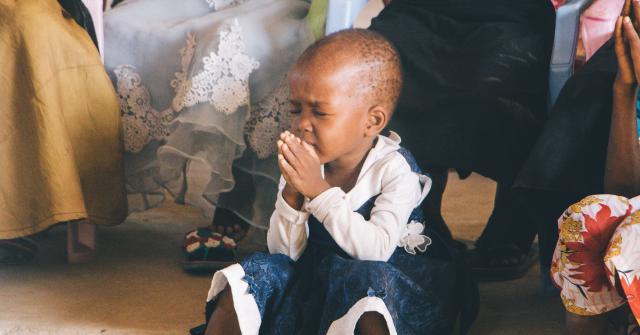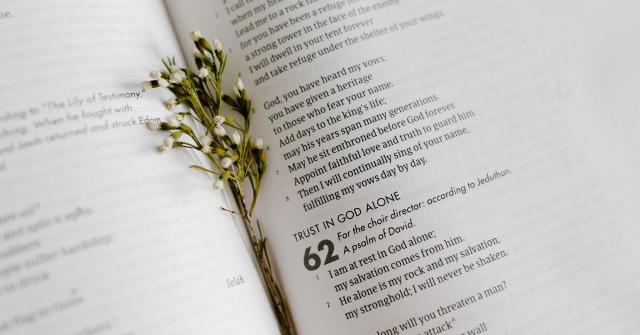
Is there Anyone with the spirit of the Holy Gods in them?
The writing is on the wall for our society.
In the book of Daniel chapter 5 we find the story of King Belshazzar and his banquet. Babylon has dominated the known world, and the inheritors of that victory decide to celebrate by getting drunk with the sacred objects of the vanquished Jewish people. And then, right in the middle of the party, the fingers of a human hand appear and write a message on the plaster of the wall. The King is absolutely terrified—and with good reason as the story goes on to reveal: the party is well and truly over.
How might this story speak to our context?
Since the 1960s, Western societies like Canada and Britain have turned decisively against their own Christian roots. We have secularised Christianity and then deconstructed secularism. We are now post Christian and post secular. For several decades we’ve been having a party to celebrate our brave new world as we’ve thrown off the stifling constraints of Christianity, indulged sexual permissiveness, torn up family and marriage commitments, and pursued our dream of a ‘modern’ ‘advanced’ consumer society (note the self-generated adjectives).
As a culture we've done the things we thought would solve all our problems—but it turns out we've now got a whole load of new problems. The hyper-individualism that’s resulted has made us more lonely rather than more happy: we’re facing a mental health epidemic.
Despite our distrust of the narratives of techno-capitalism, we still keep consuming its products to the point that our entire eco-system is at risk and inequality is persistent and rising. And despite all our politically correct talk about equality, anti-racism and anti-discrimination our society is becoming more—not less—tribal, divided, fractious and unkind. So much of the sacred inheritance of the Bible’s long witness in our culture is diminished: marital fidelity, freedom of speech, care for the weak, the vulnerable and the stranger, the sanctity of life, integrity in public office, thrift, hard work and celebratory generosity, respect for the land, a planning horizon measured not in years but generations, an economy that produces and saves.
And then came covid.

Suffering, illness and death are always tragic. But our response to the pandemic has been the writing on the wall for our society. The fragility of our false gods has been exposed. For most of history and in most parts of the world, human finitude in the face of the uncertainties of the world has been normal. But we’ve grown so used to being shielded from harm by the state, science, technology or wealth that the sudden awareness of our own mortality has provoked a deep anxiety, almost panic. The pandemic has revealed and amplified some of the huge changes that have been going on for some time. We’re not going to go back to the way things were. The familiar terrain of modernity is now decisively behind us. The old certainties are crumbling. The era of western dominance is ending. In the west we imagine ourselves as rich and powerful, but in reality we are hopelessly indebted, morally bankrupt and spiritually vulnerable. A culture as full of selfish individualism and popular banalities as ours is practically unleadable, which is why we have the leaders we deserve. Our political enemies, whether of totalitarian or fundamentalist varieties, look on with glee.
Increasingly people are realising the emptiness of atheist secular humanism. Spiritual openness in our society is rising fast. People are searching for meaning and belonging in all kinds of places, including Christianity and the church. Even people who were formerly atheist or agnostic secular thinkers are saying ‘enough is enough’ and turning back to Christian faith for answers—thinkers like journalist Douglas Murray, psychologist Jordan Peterson and historian Tom Holland.
So there are huge opportunities for the gospel, but also new challenges. Some of the old challenges from militant secularists may intensify but the church will also face challenges from other faiths and spiritualities. These external challenges are no big deal for the church so long as we stand our ground—Jesus has already defeated evil and subdued the powers on the cross and the church has faced all this many times before. The biggest challenges are internal to the church, and central to those internal challenges is our loss of discipleship, our ignorance of the Bible, and our tendency to act before we pray.
Do we have a culture that produces leaders like Daniel and his friends? Are we discipling young believers who know that Jesus is King in ‘Babylon’ just as he is in the Church; who won’t compromise their identity as Jesus-followers even under pressure; who are capable of pursuing excellence in all spheres of learning and culture under God’s anointing; who won’t bow down to false gods even under threat of death (including reputational death by twitter); and whose first response to such challenges is not to withdraw but to pray and expect God’s kingdom to break through?
If our answer to the above is negative or ambivalent, perhaps we should ask these questions of ourselves. Am I this kind of leader? Do I model what is needed in these times? Am I living graciously but clearly against the flow of my society’s rebellion against God?
The reality is that much of western Christianity is hopelessly compromised. We have tolerated and assimilated to the false gods worshipped around us. We’ve lost confidence in the Bible and have grown dangerously ignorant of it. We’ve grown far too comfortable living off the good deposited in our society by previous generations. But those goods are nearly spent. Can we read the writing on the wall?
When King Belshazzar freaked out at the writing on his wall, the first thing he did was call the enchanters and astrologers and promise riches and glory to whoever among them could figure it out and tell him what it meant. None could.
But then the Queen came in and reminded him about Daniel, an advisor to the previous generation with great insight and intelligence. Can anyone read the signs of the times? Is there anyone in whom the spirit of the holy gods dwells?
My conviction is that God is raising up a new generation of Daniels. At this time, when our culture is newly aware of its vulnerability and desperately looking for hope, God is mobilizing the church for a new wave of mission.
Mobilising is a word that means calling up and preparing a company of people for intentional action. God is calling us deeper into relationship with him, calling us to prepare in prayer, to a deeper attention to Scripture, and to a commitment to living holy lives in relationship together. Are we up for this?
Paul Williams is a General Session Speaker at this year's Mission Central SERVE Conference:
- General Session: Paul Williams
Friday 6:30 PM - Seminar: Can we sing the Songs of Zion in a Foreign Land?
Saturday 10:00 AM
Register and buy your tickets to SERVE today







